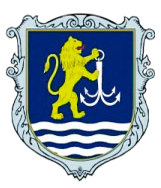USE OF MODERN TECHNOLOGIES OF BULK CARGO TRANSPORTATION BY SEA TRANSPORT
Abstract
Introduction. The significant volume of bulk cargo transportation by sea as well as physical and chemical properties of these substances determine the specifics of the transportation process and the choice of appropriate technology that ensures the quality delivery and the maximum level of safety. The need to solve this problem actualizes the introduction of innovative technological solutions in this area. The use of flexitanks is one of the solutions, which allows to transport safe liquid cargo of various origins and purposes in large containers. Flexitanks are also able to ensure effective organization of the transportation process, including multimodal one. The aim of the article is to study peculiarities of the use of flexitanks as a modern technology of transportation of bulk cargo by sea and to form specific organizational and technological measures for their use. Results. The role of bulk cargo in the total volume of international maritime trade is identified in the study. Its specifics is studied. Based on the study of existing methods and technological schemes of transportation of bulk cargo by sea (tank-containers, tanks, tanker vessels), their advantages and disadvantages, the reasonability of the flexitanks use has been proved. Their design features, technical and operational characteristics and requirements that must be met to ensure the appropriate level of safety when using are defined. Modern trends, which are typical for the modern world market of flexitanks are noted. The attention to the features of standardization of processes and estimation of their quality and reliability is paid. According to the results of the study of technical and economic indicators of different types of containers intended for transportation of bulk cargo by sea, their main operational characteristics are compared. The advantages and disadvantages of flexitanks are singled out. The technology of cargo transportation process is characterized. The general technological scheme of bulk cargo transportation using flexitans at export-import operations has been formed. A set of organizational and technological measures aimed at further development and promotion of this technology of transportation of bulk cargo by sea is proposed. Conclusions. The use of flexitanks as a modern technology for transportation of bulk cargo by sea is aimed at improving the efficiency of this process, ensuring the appropriate level of ecological compartibility and maximum safety.
Downloads
References
2. Forming an automated technology to manage freight transportation along a direction / T. Butko, О. Kostiennikov, L. Parkhomenko, V. Prokhorov, G. Bogomazova. Eastern-European Journal of Enterprise Technologies. 2019. № 1/3 (97). Р. 6–13.
3. Лапкін О.І., Онищенко С.П., Коскіна Ю.О. Теорія і практика фрахтових операцій: монографія. Одеса : КУПРІЄНКО С.В., 2017. 151 с.
4. Організація транспортного процесу та управління роботою флоту на міжнародному ринку транспортних послуг в умовах глобалізації міжнародного судноплавства: монографія / авт. кол. : О.Г. Шибаєв, І.В. Савельєва, О.В. Кириллова та ін. Одеса : КУПРІЄНКО С.В., 2015. 171 с.
5. Шибаєв О.Г., Коскіна Ю.О. Динамічна модель оптимізації проекту роботи морського торговельного флоту. East European Science Journal. 2020. № 53. С. 44–48.
6. Brouer B.D., Karsten C.V., Pisinger D. Optimization in liner shipping. A Quarterly Journal of Operations Research. 2017. № 15 (1). Р. 1–35.
7. Кириллова О.В. Теоретичні основи управління роботою флоту у транспортно-технологічних системах : дис. … докт. техн. наук : 05.22.01. Одеса, 2017. 470 с.
8. Коскіна Ю.О. Теоретико-множинний підхід до моделювання структур систем доставки вантажів. Вісник Вінницького національного політехнічного університету. 2019. № 5 (146). С. 62–74.
9. Коскіна Ю.О. Формалізація процесу організації системи доставки вантажів. Наукоємні технології. 2020. № 1. С. 111–117.
10. Adland R., Cariou P., Wolff, F.-C. The influence of charterers and owners on bulk shipping freight rates. Transportation Research. Part E: Logistics and Transportation Review. 2016. № 86. Р. 69–82.
11. Lernichenko K., Yevtushenko V. Innovative project of regasification floating barges for the storage of liquefied natural gas (FSRB). Development of management and entrepreneurship methods on transport. 2019. № 2. 39–51.
12. Слободян В.В. Актуальні проблеми розвитку контейнерних перевезень в Україні. Приазовський економічний вісник. 2019. Вип. 5 (16). С. 29–36.
13. Модель організації мультимодальних вантажних перевезень у міжнародному сполученні / Г.С. Прокудін, А.А. Чупайленко, О.С. Дудник, О.Г. Прокудін, Д.М. Омаров. Вісник Національного транспортного університету. 2016. № 1 (34). С. 397–406.
14. Еластичні резервуари. URL: https://tent-m.com.ua/elastichni-rezervuary/(дата звернення: 17.09.2021).
15. Сравнительная характеристика резервуаров. URL: http://flexitara.ru/ru/packaging/flexitanks.html (дата звернення 17.09.2021).





